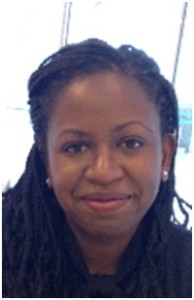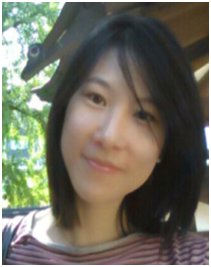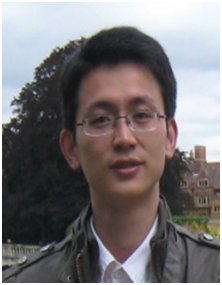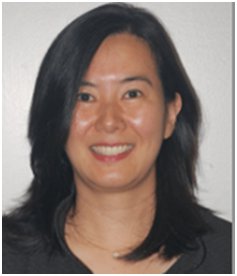2015
Visiting Studentship
The Foundation offers a new fellowship for M.A. or Ph.D. students from East Asian institutions to spend a year abroad either in the U.S. or in Europe.
Candidates must be registered in a Masters or PhD program at a university or approved research institute in East Asia, working on topics relevant to the Foundation.
Two letters of recommendation are required: one from an academic referee familiar with the candidate’s work, and the other from the host institution confirming that it is willing to host the candidate during the period of the fellowship.
A detailed plan of the work that the candidate intends to carry out at the host institution is required.
All applications must be accompanied by a certificate of English language proficiency from an internationally recognized test, such as TOFEL or IELTS. The D. Kim Foundation will conduct either Skype or personal interviews for the final selection.
The duration of fellowship is six to twelve months. The elected candidate must normally stay at the host institution during the whole of the fellowship period.
The amount of the fellowship is up to US$ 45,000. The final amount will be decided later in accordance with the elected candidate’s specific circumstances.
Post-doctoral Fellowship
 |
Ruselle K. Meade will receive a D. Kim Foundation Postdoctoral Fellowship for the 2015-2016 academic year. Her project Constructing a Nation: Popularizing Technology in Modern Japan, 1969-1930 will analyze how popularizations of technology helped mold Japanese ideas of nationhood and empire in the late nineteenth and early twentieth centuries. She will explore how various interest groups promoted their value-laden views of the world and study the motives and effects of popularization of science and technology in modern Japan. By examining various sources, the project aims to build a comprehensive picture of attempts to shape the public’s understanding of Japan as a ‘technological nation’. |
Dissertation Fellowship
 |
Sookyeong Hong will receive a D. Kim Foundation Dissertation Fellowship for the 2015-2016 academic year. Her dissertation traces the history of shokuyo (food and nourishment) movement, which sought an alternative diet and lifestyle regimen in prewar Japan. It has survived today in the form of macrobiotics, and is widely known in US and Europe as a natural holistic diet. She will explore what stance this alternative movement took vis-à-vis predominantly institutionalized modern biomedicine and increasingly industrialized food culture, and how the concepts of vitality, ethics, national ethos, and climate came into play in the allegedly holistic claims on eating and the human body. By researching the formation of nutritional and physiological knowledge in early 20th century Japan, her work will contribute to the understanding of how heterogeneous knowledge tried to present itself as legitimate knowledge at a time when the modern scientific paradigm itself was in constant process of formation. |
 |
Yubin Shen will receive a D. Kim Foundation Dissertation Fellowship for the 2015-2016 academic year. His dissertation uses malaria as a case study to examine the origin and development of tropical medicine in the first half of twentieth-century in China within a global historical perspective. He suggests that tropical medicine’s emergence as a distinct discipline in China resulted from complicated interrelations of different groups of participants, including Chinese/foreign regimes, international organizations, and medical specialists. By elaborating the significance of the global networks of malaria, the dissertation aims to offer better understanding of global histories of tropical medicine, international health, and modern China. |
Traveling and Research Grant
 |
Michitake Aso will receive a D. Kim Foundation research/travel grant in 2015. He will travel to Paris to present his paper on Vietnamese traditional medicine, ASLEM, at the 14th International Conference on the History of Science in East Asia. His research on the history of medicine focuses on Vietnam, Cambodia, and Laos after 1945. Home to emerging diseases such as Avian Influenza and endemic infections such as malaria, this region plays a vital role in understanding current global health concerns. His project offers an explanation why traditional medicine thrived during the decolonization period despite the presence of modern biomedicine. |
 |
Annika A. Culver will receive a D. Kim Foundation research/travel grant in 2015. She will travel to Cambridge, Massachusetts and Florida and intends to complete the remaining portions of research for a book project on an American ornithologist Oliver L. Austin during the postwar Korea and Japan. Austin’s experiences as a scientist working on environmental policies in both Korea (1945-1946) and Japan (1946-1949) shed light on the ravages of World War II on the environment as well as the human population.
|
 |
Shiho Imai will receive a D. Kim Foundation research/travel grant in 2015. Her project traces Japan’s fascination with outer space from the 1950s to the 1970s, and explores how Japan’s early space program was shaped by popular interest and culture as well as by cold war politics. By analyzing a variety of sources including animations, science fiction novels and Japanese media’s response to Apollo 11’s mission to the moon, she argues that the space age compelled Japan to reflect on its past and reinvent itself as a bastion of peace in the post apocalyptic world.
|
 |
Zhaojin Zeng will receive a D. Kim Foundation research/travel grant in 2015. His project explores the technology transfer from the West to China in post-Mao era, through an in-depth case study of the technology transfer from Sweden by a Chinese local state-owned steel enterprise in the 1980s and 1990s. By analyzing the whole process of this technology transfer, from the beginning of decision making to the failure of production in the end, this research will identify the institutional, cultural, and business factors that affected the business exchange and technology transfer between China and the West. |
Group Grants
A group grant is awarded to support the participants at the 14th International Conference on the History of Science in East Asia (14th ICHSEA), held in Paris July 6 -10, 2015. The fund will be distributed by Dr. Catherine Jami of the Ecole des Hautes Etudes en Sciences Sociales (EHESS), the host institution of the conference.







